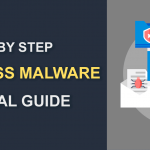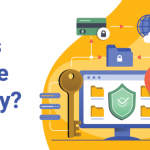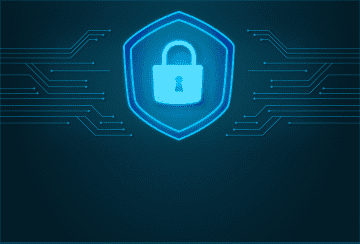10 Best WordPress Security Plugins to Protect Your Website
September 05, 2022 | By Admin
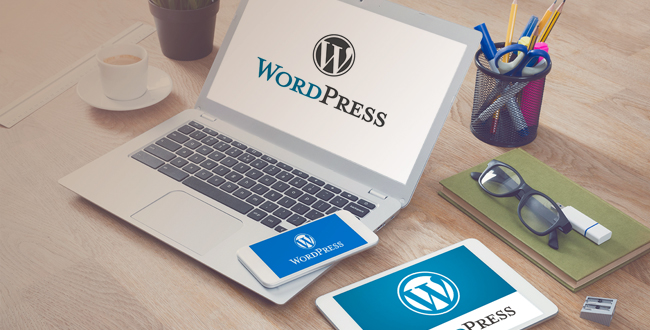
Best WordPress Security Plugins
Almost every WordPress website is vulnerable to malware attacks. When a website is hacked or compromised it will certainly bring down the reputation of the company, it will cost a lot to restore the system to normal and create a great impact on the search engine ranking.
However, if there is a check on the security controls to tighten up boundaries, websites can be effectively protected from malicious attacks. In this article, we will be discussing some tips to fix WordPress security issues. Read on to know more about WordPress Security plugins.
10 Best WordPress Security Plugins to Fix Issues
1: Two-factor authentication
Two-factor authentications are the most effective way to provide protection to WordPress websites from online threats to ensure sites' login security. The user is sent a One-Time Password (OTP) through SMS to the registered mobile number which is valid for a limited time frame. The OTP is valid only for a user for a limited time frame. In this way, if the hacker attempts to use the OTP after the expected time frame would not be able to access the website as it goes invalid after a stipulated time frame.
2: Strong password
Passwords have been a common security factor to protect user accounts. Implementing an effective use of passwords that is hard to guess is required while it also must be changed at regular intervals. Use a complex password with a minimum of 10 characters with a combination of numbers, lowercase and uppercase letters along with some special characters as well. Refrain from using personal information like date of birth, spouse's name, child's name and so. Implement the use of a password generator to generate passwords that are complex to crack.
3: reduce the number of user login attempts
Hackers try logging in to accounts multiple times until they successfully crack the password. Limiting the number of attempts to log in for a specific amount of time can save the WordPress website from cyber-attacks. Incorporate the use of plugins that can lock the website from further login attempts.
Check whether your WordPress site has all the WordPress security measures in place.
4: Choose a good hosting provider
You might have an effective website security system in place to protect the WordPress website. However, you must be sure if you have chosen a good hosting provider that is effective to deny vulnerable attacks. While you choose one, check if the hosting provider comprises of WP firewall, updated MySQL and PHP to ensure protected hosting.
5: Scheduled Backups
The Organization should have an effective backup plan as a part of the crisis management strategy. In case of any mishap, organizations can rely on the backup solution plan to restore lost files and programs and so there are fewer possibilities of losing data. There are plugins that take regular backup some of them are Vaultpress, backup buddy, and assures restore options.
6: Refrain from using the username as admin
Admin is the most common string used. Hackers try using Admin as the first string while attempting to log in. Create a new user with any other name and set admin privileges.
7: Update the WordPress environment on a regular basis
CDN for WordPress releases security update immediately after a security issue is found. The updated version has the issue fixed and upgrading to the new version would fix the existing security flaws and helps deny hackers. The hackers establish a backdoor through the security flaws that are found in the older version to target and attack your website. Set automatic updates to maintain instant updates corresponding to the new patch release.
8: Update Plugins and Themes
Plugins and themes are easy targets for hackers to gain access to personal information. Hence they have to be given proper protection. Keep the themes and plugins updated. Ensure to configure instant updates so that they stay current.
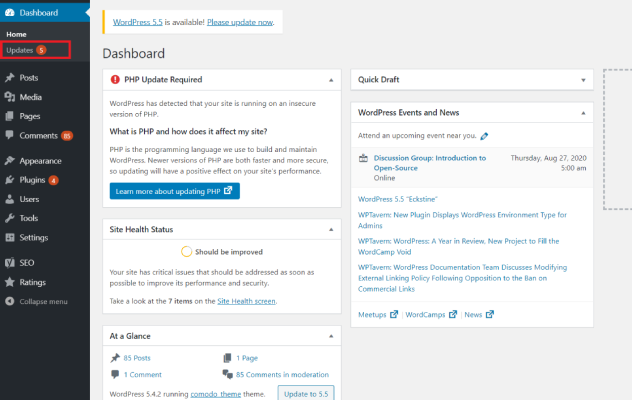
9: Remove Plugins that are not in use
Inactive plugins are vulnerable to attacks. Hence if any of the plugins are not in use, it is advisable to delete the inactive plugins to mitigate vulnerability. Deactivating the plugins is not just enough, it must be deleted and completely thrown out to the trash.
10: Monitor WordPress Files
Keep the WordPress files under the radar to track and monitor constantly. Plugins that have prevention features, security scanning and intrusion detection provide complete security solution through consistent monitoring.
WordPress websites require an extra pair of glasses to ensure consistent protection and is therefore a continuous process. Embrace the right level protection techniques at a full measure to deliver absolute protection for your WordPress website.
Hope you have better clarity about WordPress Security.
Related Resource
- Best CDN Price
- Cheap CDN
- Pay as You Go CDN
- CDN
- Free CDN
- Website Vulnerability Scanner
- Free Website Malware Scanner
- Website Backup

 (22 votes, average: 4.32 out of 5)
(22 votes, average: 4.32 out of 5)

